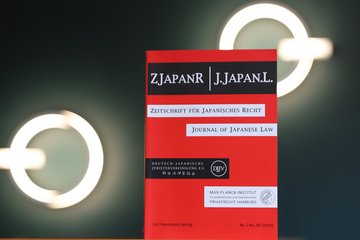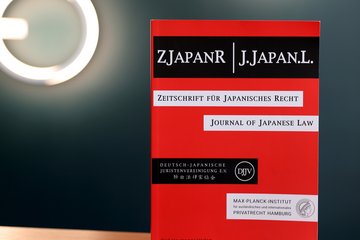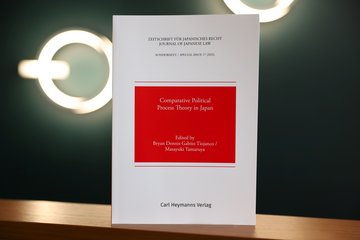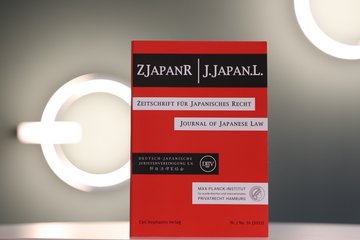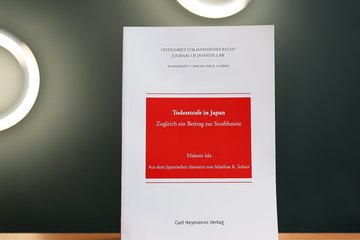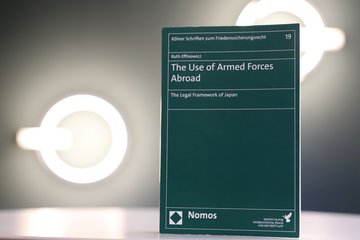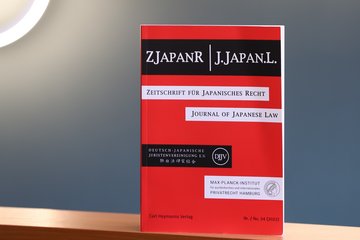The State of Japanese Legal Studies in Europe – Theme of ZJapanR 49/2020
The lead article of ZJapanR 49/2020 examines the current status of Japan vis-à-vis comparative law in Europe and outlines the many intriguing activities being undertaken in the field. Thereafter, a number of authors analyse the different legal institutions existing at the intersection of traditional structures, social change and legal reform. Further articles focus on topics such as the review of general terms and conditions in Japan and Germany and issues regarding the ordering of Japanese names in English-language texts. The ZJapanR is co-edited by Prof. Dr. Harald Baum and Ruth Effinowicz, the former and current heads of the Centre of Expertise on Japan at the Max Planck Institute for Private Law.
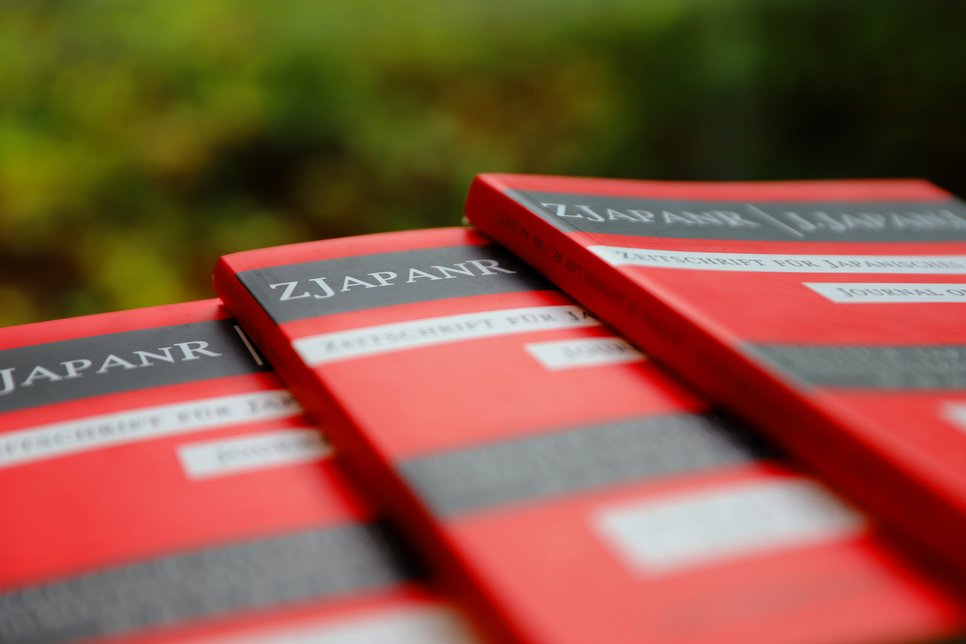
Under the leitmotif of “Endurance in Japanese Law”, the current issue of the ZJapanR offers several papers presented on 23 September 2019 at an Australian Network of Japanese Law (ANJeL) symposium held in Pavia (Italy). The issue commences with an article which, on the basis of eight country reports, demonstrates the interest in Japanese law and its role and influence in the areas of teaching, research and practice in different European countries. Co-authored by Harald Baum and Moritz Bälz – both German experts on Japanese law – the article describes the intensive exchange between Germany and Japan, a process to which the Centre of Expertise founded by Baum contributes significantly.
Also stemming from the symposium are three articles that deal with the perpetuation of traditional structures in the Japanese legal system: Souichirou Kozuka analyses the style of Japanese court rulings and shows their importance as (de facto) binding precedent in Japanese court jurisprudence, something that can be traced to a desire for consistency. Masako Kamiya looks at Japanese legal associations, which as a result of mandatory registration and the associations’ competence to take disciplinary measures supervise the professional ethics of bar members – a system that appears to have grown outmoded. David T. Johnson and Dimitri Vanoverbeke then show that changes made to the Japanese criminal law system in recent years have served to reinforce the status quo.
Numbering among the articles published in the current issue of the ZJapanR is also a contribution by Jürgen Basedow, Emeritus Director of the Max Planck Institute for Private Law. In his article Basedow analyses the new rules on the review of general terms and conditions in the revised Japanese Civil Code of 2020 from a comparative perspective, considering in particular German law as well as other selected national regimes.
Andrea Ortolani, in his article, argues for use of the typical English-language ordering of names (given name followed by surname) when referring to Japanese names – despite the Japanese government’s call to use the traditional Japanese ordering of names in non-Japanese as well as Japanese texts.
The Journal of Japanese Law (ZJapanR) is currently the world’s only Western-language legal periodical addressing the myriad developments in Japanese law with regular and timely documentation and analysis.
Prof. Dr. Harald Baum, former head of the Centre of Expertise at the Max Planck Institute for Comparative and International Private Law, founded the Journal in 1996. Since 2004, the ZJapanR has been published by the Hamburg Max Planck Institute in partnership with the German-Japanese Association of Jurists. Ruth Effinowicz, who in June 2020 succeeded Harald Baum as head of the Centre of Expertise on Japan at the Institute, is now the managing editor of the Journal.
Contents of Issue 49/2020:
Symposium
The Australian Network for Japanese Law (ANJeL): Endurance in Japanese Law
Giorgio Fabio Colombo, Béatrice Jaluzot, Wered Ben-Sade, Roger Greatrex, Francisco Barberán, Dimitri Vanoverbeke, Luca Siliquini Cinelli, Harald Baum, Moritz Bälz: The State of Japanese Legal Studies in Europe
Souichirou Kozuka: The Style and Role of Judgments by Japanese Courts. How They are Written and Read
Masako Kamiya: Disciplinary Procedures. What It Tells Us about Practicing Attorneys in Japan
David T. Johnson, Dimitri Vanoverbeke: The Limits of Change in Japanese Criminal Justice
Mark A. Levin, Kallista Hiraoka: Gender and Law Scholarship in the Law in Japan Field A Comprehensive Bibliographic Study
Articles
Jürgen Basedow: AGB-Kontrolle in Japan und Deutschland
Mihoko Sumida: Robo-Advisors and the Legal Duties of their Providers
Michiko Takata: Neuere Entwicklungen der japanischen Rechtsprechung zum Verwaltungsermessen. Kritische Überlegungen zum „fachlich-technischen Ermessen“
Andrea Ortolani: First Name First. On the Order of Japanese Names in English
Timothy Magarry: Can a Retweet Infringe Copyright? Nawata v Twitter
Teppei Ono: Electronically Recording Custodial Interrogations in Japan. Can the Revised CCP Provide Hope for the Reform of Custodial Interrogation?
Keiko Gutmann: Zur Erhöhung der Umsatzsteuer in Japan und insbesondere zur Kleinunternehmerproblematik
Reviews
Johannes Kaspar: Christian SCHWARZENEGGER / Makoto IDA (Hrsg.): Autonomie am Lebensende – Kultur und Recht. Die aktuelle Diskussion in der Schweiz und in Japan
Johannes Kaspar: Robert ESSER / Makoto IDA (Hrsg.): Menschenrechtsschutz und Zusammenarbeit im Strafrecht als globale Herausforderung. Rezeption internationaler Standards in Deutschland und Japan
Oliver Schön: Christopher HEATH / Atsuhiro FURUTA (eds.): Japanese Patent Law – Cases and Comments
Jan Schneemann: Miyuki UEDA: Die stille Gesellschaft in Japan
New Books
New books on Japanese Law in Western languages
Image: © Max Planck Institute for Comparative and International Private Law

